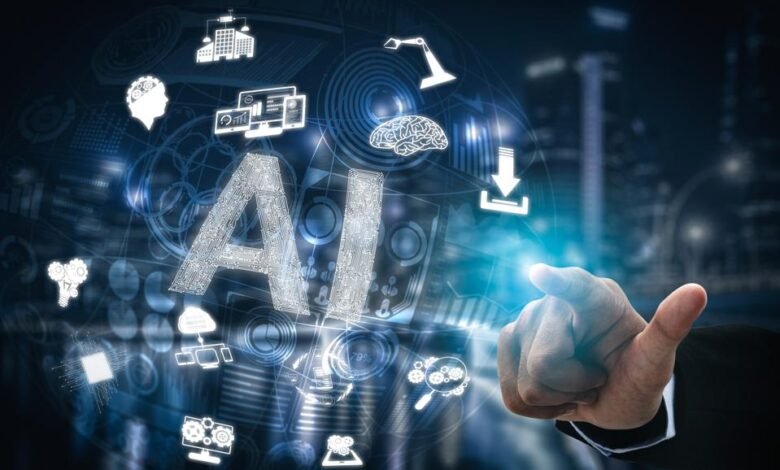The Impact of AI on the Job Market: Opportunities and Challenges in 2023

impact of AI has rapidly transformed various industries and businesses, creating a paradigm shift in the way we work and live. With its potential to automate repetitive tasks, optimize operations, and make better-informed decisions, AI is being hailed as a game-changer
. However, there is also growing concern that AI will lead to significant job losses, threatening the livelihoods of millions of workers worldwide. In this context, it is crucial to understand the impact of AI on the job market, including the opportunities and challenges that AI presents
. This article will explore the impact of AI on the job market, highlighting its opportunities and challenges, and discuss the measures that can be taken to ensure that AI benefits society as a whole, while minimizing its negative impact on the job market
Opportunities:
- Automation of repetitive tasks: AI has the potential to automate repetitive tasks, such as data entry, inventory management, and customer support, freeing up workers to focus on more complex and creative work.
- Increased efficiency and productivity: AI can help businesses optimize their operations and increase efficiency and productivity by analyzing large volumes of data and identifying patterns and insights that would be difficult for humans to detect.
- Creation of new job roles: While AI may replace some jobs, it also has the potential to create new job roles, such as AI engineers, data scientists, and AI trainers.
- Improved decision-making: AI can provide businesses with real-time insights and predictive analytics, enabling them to make better-informed decisions.
Challenges:
- Job displacement: One of the biggest concerns about AI is that it will lead to significant job displacement, particularly in industries such as manufacturing, transportation, and customer service.
- Skills gap: AI requires specialized skills, such as programming and data analysis, which many workers do not possess. This could lead to a skills gap, where there are not enough workers with the necessary skills to fill the new job roles created by AI.
- Bias and discrimination: AI is only as good as the data it is trained on. If the data is biased, the AI will also be biased, potentially perpetuating discrimination and inequality.
- Ethical considerations: As AI becomes more sophisticated, there are ethical considerations to be addressed, such as the impact of AI on privacy, security, and human rights.
Read more:The Impact of Artificial Intelligence on the Future of Work: Opportunities and Challenges in 2023
Conclusion:
AI is a double-edged sword with its potential to create new job roles, increase efficiency and productivity, and improve decision-making. However, its impact on the job market also poses significant challenges, such as job displacement, skills gap, bias and discrimination, and ethical considerations.
Addressing these challenges requires proactive and collaborative efforts, including education and training programs, policies and regulations, and ethical frameworks for AI development and deployment.
By doing so, we can ensure that AI benefits society as a whole, while minimizing its negative impact on the job market. The future of work will undoubtedly be impacted by AI, and it is up to us to harness its potential while ensuring that no worker is left behind in the process.
Advantages of AI on the Job Market:
- Automation of Repetitive Tasks: AI can automate repetitive and monotonous tasks, such as data entry, thereby freeing up time for employees to focus on more creative and value-added work.
- Increased Efficiency and Productivity: AI can analyze vast amounts of data and provide valuable insights, helping organizations make data-driven decisions that enhance efficiency and productivity.
- Creation of New Job Roles: AI has the potential to create new job roles such as data scientists, AI engineers, and trainers, which require specialized skills and expertise.
- Improved Customer Experience: AI-powered chatbots can provide 24/7 customer support, enhancing the customer experience and improving customer satisfaction.
- Cost Savings: By automating routine tasks, AI can help businesses save costs, which can be reinvested in other areas such as research and development.
- Predictive Maintenance: AI can monitor equipment and machinery to identify potential issues and perform predictive maintenance, thereby reducing downtime and increasing productivity.
- Improved Healthcare: AI can help healthcare professionals make accurate diagnoses, personalize treatment plans, and improve patient outcomes.
Overall, AI presents numerous opportunities for businesses and individuals, such as increased efficiency, cost savings, and improved customer experience. By leveraging these advantages, organizations can enhance their competitive edge and drive growth.












One Comment